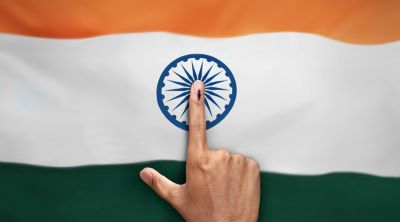Context-
The integrity of electoral democracy forms the cornerstone of any vibrant democratic society. In India, where democratic principles have been enshrined in the Constitution, free and fair elections are paramount to upholding the democratic ethos. However, recent events, such as the Chandigarh Mayor's election case, have raised concerns about the sanctity of the electoral process and the potential threats to democratic principles. In this discourse, we look into the challenges facing India's electoral democracy, analyze the implications of recent judicial interventions, and explore avenues for safeguarding the integrity of the electoral system.
Challenges to Electoral Democracy
1. Subversion of the Electoral Process: The Chandigarh Mayor's election case exemplifies the subversion of the electoral process by vested interests. The undue influence exerted by a Returning Officer affiliated with a political party highlights systemic vulnerabilities that undermine the fairness of elections.
2. Rise of Religious Polarization: The growing religious fervor in Indian politics poses a significant challenge to secularism and pluralism. Political parties, driven by opportunism, exploit religious sentiments to garner electoral support, disregarding legal provisions and judicial directives that prohibit appeals based on religion.
3. Erosion of Institutional Integrity: Instances of electoral malpractice underscore a broader erosion of institutional integrity within the electoral framework. The failure of authorities, including the High Court, to address blatant violations of electoral norms erodes public trust in democratic institutions.
Judicial Intervention and Remedial Measures
1. Role of the Judiciary: The Supreme Court's proactive stance in safeguarding electoral integrity through landmark judgments underscores its role as the guardian of democratic principles. Judicial interventions, such as in the electoral bonds scheme and the Chandigarh Mayor's election case, signal a commitment to upholding the rule of law and preserving the sanctity of elections.
2. Legal Safeguards and Enforcement: Existing legal provisions, including the Representation of the People Act, 1950, and the Representation of the People Act, 1951, provide a robust framework for conducting elections. However, effective enforcement mechanisms and stringent penalties for electoral misconduct are essential to deter subversion and uphold democratic norms.
3. Public Awareness and Civic Engagement: Promoting civic awareness and active citizen participation is pivotal in safeguarding electoral democracy. Educating voters about their rights, emphasizing the importance of electoral integrity, and fostering a culture of accountability can mitigate the influence of divisive rhetoric and electoral malpractice.
Addressing Religious Polarization
1. Legal Prohibitions and Judicial Precedents: Legislative provisions, such as Section 123 of the Representation of People Act, 1951, prohibit appeals based on religion in electoral campaigns. Judicial precedents, including landmark Supreme Court judgments, reinforce the imperative of secularism and condemn attempts to exploit religious sentiments for political gain.
2. Media and Civil Society Engagement: Media platforms and civil society organizations play a crucial role in shaping public discourse and countering divisive narratives. Responsible journalism, unbiased reporting, and advocacy for inclusive politics can counteract the influence of religious polarization on electoral outcomes.
The Road Ahead: Ensuring Electoral Integrity
1. Strengthening Institutional Oversight: Enhancing the autonomy and accountability of electoral bodies, such as the Election Commission of India, is essential for ensuring impartiality and transparency in the electoral process. Robust mechanisms for monitoring, oversight, and redressal of electoral grievances can bolster public confidence in democratic institutions.
2. Political Accountability and Ethical Leadership: Political parties must prioritize ethical conduct and accountability in their electoral strategies. Upholding democratic values, respecting legal norms, and fostering inclusive governance are imperative for building public trust and promoting electoral integrity.
3. Continued Judicial Vigilance: The judiciary's vigilant oversight of electoral processes is indispensable in safeguarding democratic principles and constitutional values. Judicial activism, coupled with adherence to judicial precedent and constitutional principles, can serve as a bulwark against electoral malpractice and partisan interference.
Conclusion
In conclusion, the challenges facing India's electoral democracy emphasize the urgent need for unified efforts to uphold democratic values. Through judicial vigilance, legislative reforms, public education, and institutional strengthening, India can fortify the integrity of its electoral process. As the nation approaches upcoming elections, it must prioritize the preservation of democratic principles, combat religious polarization, and promote inclusivity and transparency. By fostering a culture of accountability, civic participation, and respect for pluralism and secularism, India can reaffirm its commitment to democratic governance and ensure a fair and representative political environment. It is through collective action and unwavering dedication to democratic ideals that India can navigate the complexities of its electoral landscape and emerge as a beacon of democratic excellence on the global stage.
|
Probable Questions for UPSC mains Exam-
|
Source- The Hindu







